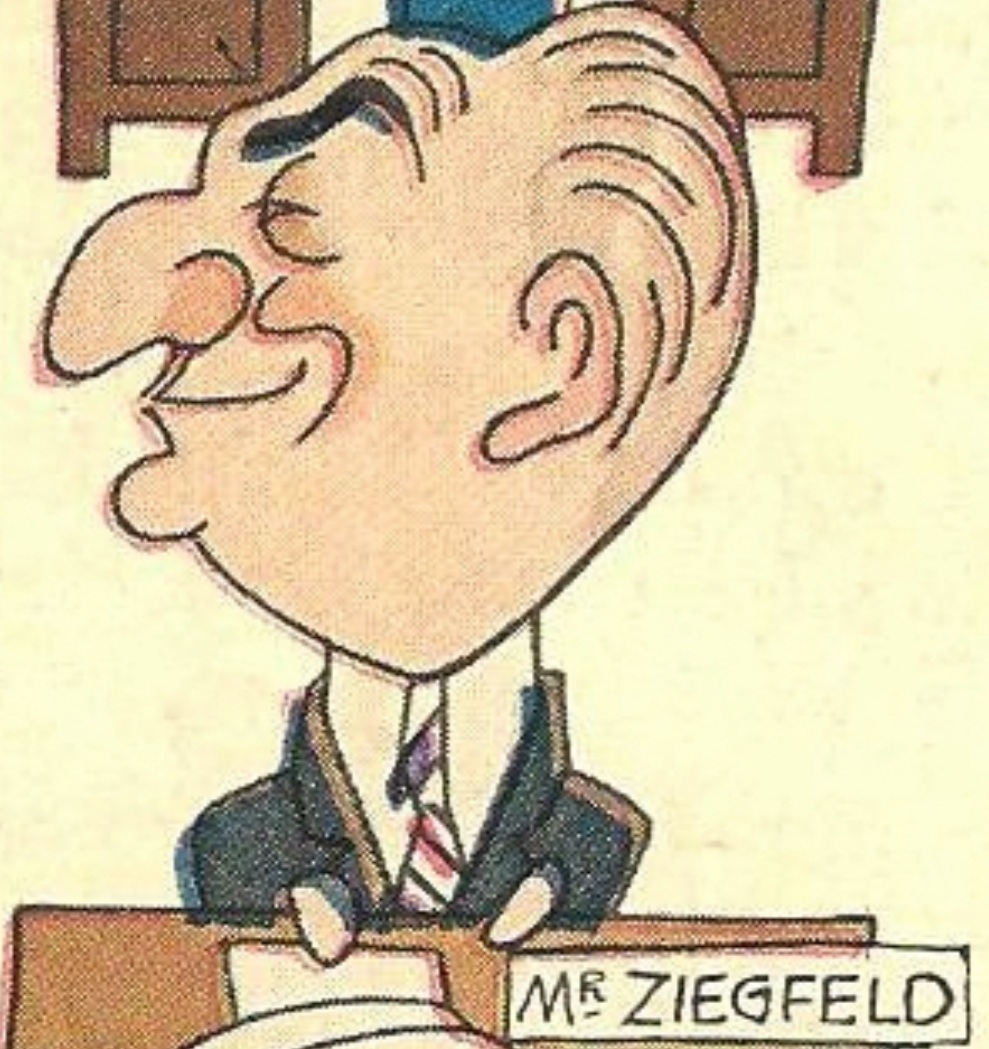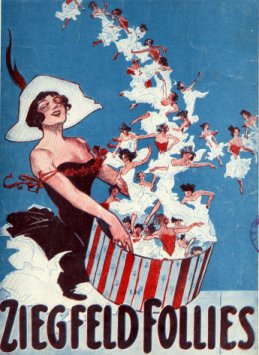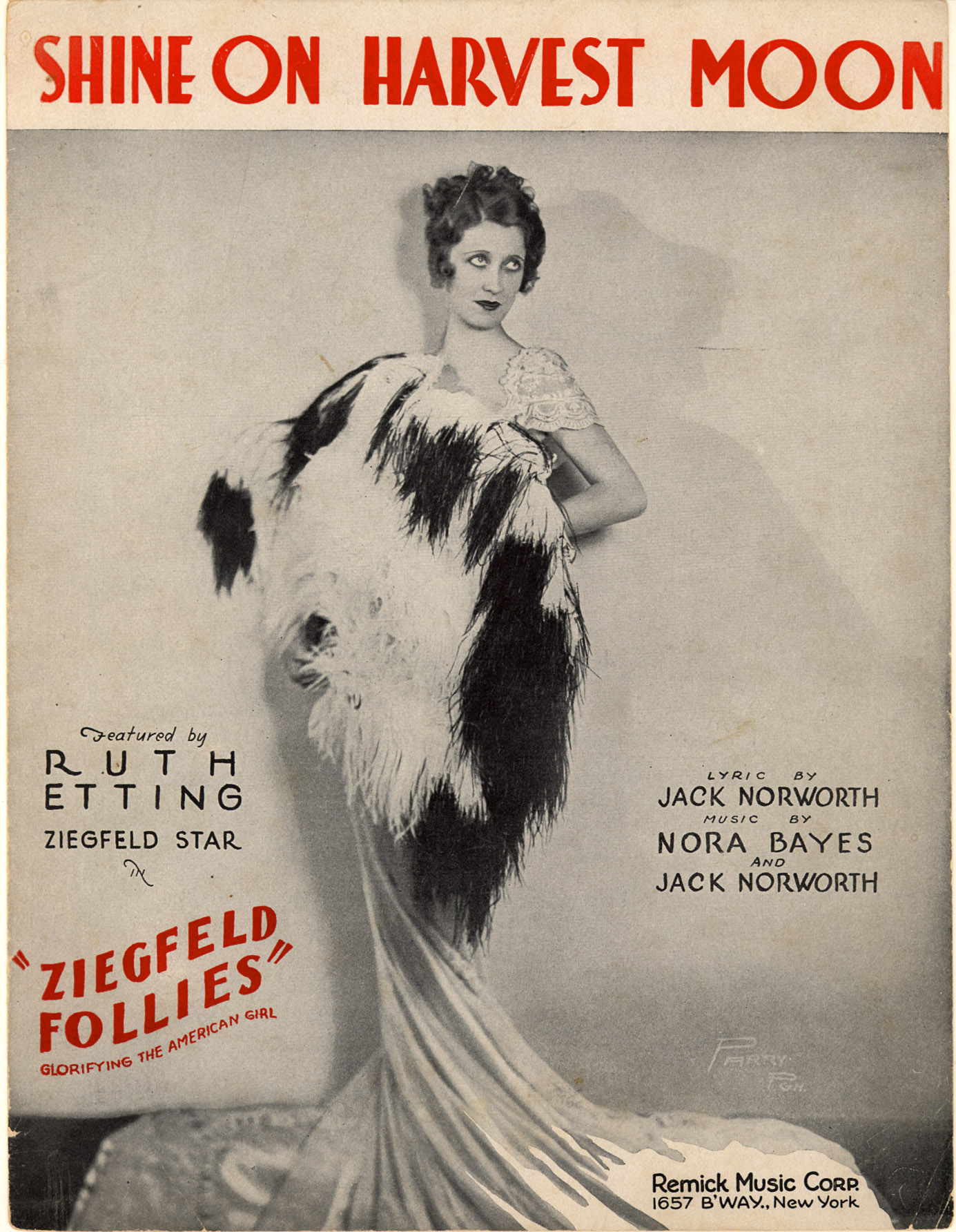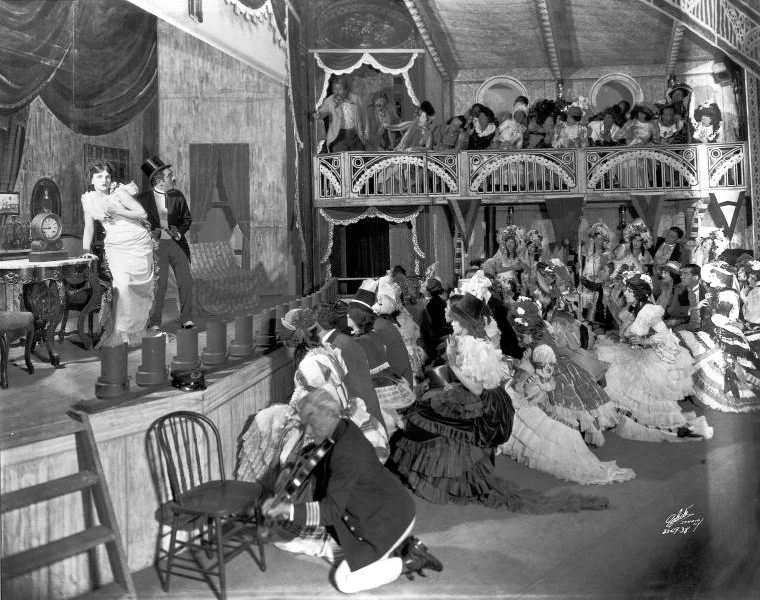|
Ziegfeld
Florenz Edward Ziegfeld Jr. (; March 21, 1867 – July 22, 1932) was an American Broadway impresario, notable for his series of theatrical revues, the ''Ziegfeld Follies'' (1907–1931), inspired by the ''Folies Bergère'' of Paris. He also produced the musical ''Show Boat''. He was known as the "glorifier of the American girl". Ziegfeld is a member of the American Theater Hall of Fame. Early life Florenz Edward Ziegfeld Jr. was born on March 21, 1867, in Chicago, Illinois. His mother, Rosalie ('' née'' de Hez), who was born in Belgium, was the grandniece of General Count Étienne Maurice Gérard. His father, Florenz Edward Ziegfeld, was a German immigrant whose father was the mayor of Jever in Friesland. Ziegfeld was baptized in his mother's Roman Catholic church. His father was Lutheran. As a child Ziegfeld witnessed the Chicago fire of 1871. Career His father ran the Chicago Musical College and later opened a nightclub, the ''Trocadero'', to profit from the 1893 World's ... [...More Info...] [...Related Items...] OR: [Wikipedia] [Google] [Baidu] |
Ziegfeld Follies
The ''Ziegfeld Follies'' was a series of elaborate theatrical revue productions on Broadway in New York City from 1907 to 1931, with renewals in 1934 and 1936. They became a radio program in 1932 and 1936 as ''The Ziegfeld Follies of the Air''. Founding and history Inspired by the Folies Bergère of Paris, the Ziegfeld Follies were conceived and mounted by Florenz Ziegfeld Jr., reportedly at the suggestion of his then-wife, the stage actress and singer Anna Held. The shows' producers were turn-of-the-twentieth-century producing titans Klaw and Erlanger. The Follies were a series of lavish revues, something between later Broadway shows and the more elaborate high class vaudeville and variety show. The first follies, '' The Follies of 1907'', was produced that year at the ''Jardin de Paris'' roof theatre. During the Follies era, many of the top entertainers, including W. C. Fields, Eddie Cantor, Josephine Baker, Fanny Brice, Ann Pennington, Bert Williams, Eva Tanguay, B ... [...More Info...] [...Related Items...] OR: [Wikipedia] [Google] [Baidu] |
Anna Held
Helene Anna Held (19 March 1872 – 12 August 1918) was a Polish-French stage performer on Broadway. While appearing in London, she was spotted by impresario Florenz Ziegfeld, who brought her to America as his common-law wife. From 1896 through 1910, she was one of Broadway's most celebrated leading ladies, presented in a succession of musicals as a charming, coquettish Parisian singer and comedienne, with an hourglass figure and an off-stage reputation for exotic behavior, such as bathing in 40 gallons of milk a day to maintain her complexion. Detractors implied that her fame owed more to Ziegfeld's promotional flair than to any intrinsic talent, but her audience allure was undeniable for over a decade, with several of her shows setting house attendance records for their time. Her uninhibited style also inspired the long-running series of popular revues, the Ziegfeld Follies. Early life Born in Warsaw, Congress Poland, Russian Empire, Held was named Helene Anna Held, daught ... [...More Info...] [...Related Items...] OR: [Wikipedia] [Google] [Baidu] |
Ziegfeld Girl
Ziegfeld Girls were the chorus girls and showgirls from Florenz Ziegfeld's theatrical Broadway revue spectaculars known as the '' Ziegfeld Follies'' (1907–1931), in New York City, which were based on the Folies Bergère of Paris. Description These showgirls followed on the heels of the Florodora girls, who had started to "loosen the corset" of the Gibson Girl in the early years of the 20th century. These beauties, decked out in Erté designs, gained many young male admirers and became objects of popular adoration. All of the showgirls looked very similar, both in appearance and in stature. They danced in complete synchronization, and were the only act that was uniform in the Ziegfeld Follies. Many were persuaded to leave the show to marry, some to men of substantial wealth. The Ziegfeld Ball in New York City continued as a social event of the season for years after the last production of the Follies. In 1897, Ziegfeld married Anna Held, one of his Ziegfeld girls ... [...More Info...] [...Related Items...] OR: [Wikipedia] [Google] [Baidu] |
Billie Burke
Mary William Ethelbert Appleton Burke (August 7, 1884 – May 14, 1970) was an American actress who was famous on Broadway and radio, and in silent and sound films. She is best known to modern audiences as Glinda the Good Witch of the North in the Metro-Goldwyn-Mayer movie musical '' The Wizard of Oz'' (1939). Burke was nominated for the Academy Award for Best Supporting Actress for her performance as Emily Kilbourne in ''Merrily We Live'' (1938). She is also remembered for her appearances in the '' Topper'' film series. Her unmistakably high-pitched, quivering and aristocratic voice, made her a frequent choice to play dimwitted or spoiled society types. She was married to Broadway producer and impresario Florenz Ziegfeld Jr. from 1914 until his death in 1932. Early life Burke was born in Washington, D.C., the daughter of Blanche (née Beatty) and her second husband, William "Billy" Ethelbert Burke. She toured the United States and Europe with her father, a singer and ... [...More Info...] [...Related Items...] OR: [Wikipedia] [Google] [Baidu] |
Patricia Ziegfeld Stephenson
Patricia Burke Ziegfeld Stephenson (October 23, 1916 – April 11, 2008) was an American author. Early life and education Patricia Ziegfeld was born in New York City in 1916 to Florenz Ziegfeld, a Broadway impresario, and Billie Burke, an actress best known for playing Glinda the Good Witch in '' The Wizard of Oz''. She grew up in Hastings-on-Hudson in Westchester County, New York. She also lived at the family's home in Palm Beach, Florida. Her father died in 1932 and she moved to California with her mother. She attended UCLA then did some acting and writing for newspapers. Adulthood She married William Robert Stephenson, Sr. (1912–2007) on June 11, 1939. She met Stephenson while he was working as a dance instructor at the Beverly Hills Hotel. He designed homes including the General Electric show home for Ronald Reagan and Nancy Reagan. They had four children: Cecilia Duncan Stephenson, Florenz Crossley Stephenson, Susan Plemons Stephenson, and William Robert Step ... [...More Info...] [...Related Items...] OR: [Wikipedia] [Google] [Baidu] |
Show Boat
''Show Boat'' is a musical with music by Jerome Kern and book and lyrics by Oscar Hammerstein II. It is based on Edna Ferber's best-selling 1926 novel of the same name. The musical follows the lives of the performers, stagehands and dock workers on the ''Cotton Blossom'', a Mississippi River show boat, over 40 years from 1887 to 1927. Its themes include racial prejudice and tragic, enduring love. The musical contributed such classic songs as "Ol' Man River", " Make Believe", and " Can't Help Lovin' Dat Man". The musical was first produced in 1927 by Florenz Ziegfeld. The premiere of ''Show Boat'' on Broadway was an important event in the history of American musical theatre. It "was a radical departure in musical storytelling, marrying spectacle with seriousness", compared with the trivial and unrealistic operettas, light musical comedies and "Follies"-type musical revues that defined Broadway in the 1890s and early 20th century. According to ''The Complete Book of Light Opera ... [...More Info...] [...Related Items...] OR: [Wikipedia] [Google] [Baidu] |
Eugen Sandow
Eugen Sandow (born Friedrich Wilhelm Müller, ; 2 April 1867 – 14 October 1925) was a German bodybuilder and showman from Prussia. Born in Königsberg, Sandow became interested in bodybuilding at the age of ten during a visit to Italy. After a spell in the circus, Sandow studied under strongman Ludwig Durlacher in the late 1880s. On Durlacher's recommendation, he began entering Strongman (strength athlete), strongman competitions, performing in matches against leading figures in the sport such as Charles Sampson (strongman), Charles Sampson, Frank Bienkowski, and Henry McCann (strongman), Henry McCann. In 1901 he organised what is believed to be the world's first major bodybuilding competition. Set in London's Royal Albert Hall, Sandow judged the event alongside author Arthur Conan Doyle and athlete/sculptor Charles Lawes-Wittewronge. Early life Sandow was born to a family of Jews, Jewish origin in Königsberg, Kingdom of Prussia, Prussia (now Kaliningrad), on 2 April 1867. His ... [...More Info...] [...Related Items...] OR: [Wikipedia] [Google] [Baidu] |
Jerome Kern
Jerome David Kern (January 27, 1885 – November 11, 1945) was an American composer of musical theatre and popular music. One of the most important American theatre composers of the early 20th century, he wrote more than 700 songs, used in over 100 stage works, including such classics as " Ol' Man River", " Can't Help Lovin' Dat Man", " A Fine Romance", " Smoke Gets in Your Eyes", "The Song Is You", " All the Things You Are", "The Way You Look Tonight" and "Long Ago (and Far Away)". He collaborated with many of the leading librettists and lyricists of his era, including George Grossmith Jr., Guy Bolton, P. G. Wodehouse, Otto Harbach, Oscar Hammerstein II, Dorothy Fields, Johnny Mercer, Ira Gershwin and Yip Harburg. A native New Yorker, Kern created dozens of Broadway musicals and Hollywood films in a career that lasted for more than four decades. His musical innovations, such as 4/4 dance rhythms and the employment of syncopation and jazz progressions, built on, ra ... [...More Info...] [...Related Items...] OR: [Wikipedia] [Google] [Baidu] |
A Parisian Model
''A Parisian Model'' is a 1906 Edwardian musical comedy with music by Max Hoffman, Sr. to a book and lyrics by Harry B. Smith. The story concerns a dressmaker's model who comes into a fortune. It opened on Broadway in 1906, ran with success and toured. It was produced by Frank McKee and Florenz Ziegfeld Jr., and starred Anna Held, Ziegfeld's common law wife.Bordman, GeraldAmerican Musical Theatre: A Chronicle p. 266 (2011) Soon after the success of this piece, Ziegfeld would launch his famous series of ''Ziegfeld Follies'' revues. Background After sold out pre-Broadway tryouts in cities like Baltimore and Cleveland, the show ran for 179 performances at the ''Broadway Theatre'' on 41st Street in New York City from November 27, 1906 to June 29, 1907 and then went on tour in the US. It returned to Broadway for three more weeks in 1908.Mordden, EthanZiegfeld: The Man Who Invented Show Business pp. 83-89, 94 (2008) [...More Info...] [...Related Items...] OR: [Wikipedia] [Google] [Baidu] |
Chicago Musical College
Chicago Musical College is a division of the Chicago College of Performing Arts at Roosevelt University. History Founding Dr. Florenz Ziegfeld Sr (1841–1923), founded the college in 1867 as the Chicago Academy of Music. The institution has endured without interruption for years. Ziegfeld was the father of Florenz Jr., the Broadway impresario. The Academy was credited as being the fourth conservatory in America. In 1871, the conservatory moved to a new building which was destroyed only a few weeks later by the Great Chicago Fire; despite the conflagration, the college was again up and running by the end of the year. Name change In 1872, the school changed its name to Chicago Musical College (CMC); over 900 students were enrolled in that year. A Normal Teachers' Institute was added to the school's offerings. Tuition in those was an average of one dollar per lesson. Four years later, the State of Illinois accredited the college as a degree granting institution of highe ... [...More Info...] [...Related Items...] OR: [Wikipedia] [Google] [Baidu] |
Irving Berlin
Irving Berlin (born Israel Beilin; yi, ישראל ביילין; May 11, 1888 – September 22, 1989) was a Russian-American composer, songwriter and lyricist. His music forms a large part of the Great American Songbook. Born in Imperial Russia, Berlin arrived in the United States at the age of five. He published his first song, "Marie from Sunny Italy", in 1907, receiving 33 cents for the publishing rights,Starr, Larry and Waterman, Christopher, American Popular Music: From Minstrelsy to MP3, Oxford University Press, 2009, pg. 64 and had his first major international hit, " Alexander's Ragtime Band", in 1911. He also was an owner of the Music Box Theatre on Broadway. For much of his career Berlin could not read sheet music, and was such a limited piano player that he could only play in the key of F-sharp; he used his custom piano equipped with a transposing lever when he needed to play in keys other than F-sharp. "Alexander's Ragtime Band" sparked an international dance c ... [...More Info...] [...Related Items...] OR: [Wikipedia] [Google] [Baidu] |
Revues
A revue is a type of multi-act popular theatrical entertainment that combines music, dance, and sketches. The revue has its roots in 19th century popular entertainment and melodrama but grew into a substantial cultural presence of its own during its golden years from 1916 to 1932. Though most famous for their visual spectacle, revues frequently satirized contemporary figures, news or literature. Similar to the related subforms of operetta and musical theatre, the revue art form brings together music, dance and sketches to create a compelling show. In contrast to these, however, revue does not have an overarching storyline. Rather, a general theme serves as the motto for a loosely-related series of acts that alternate between solo performances and dance ensembles. Owing to high ticket prices, ribald publicity campaigns and the occasional use of prurient material, the revue was typically patronized by audience members who earned more and felt even less restricted by middle-class ... [...More Info...] [...Related Items...] OR: [Wikipedia] [Google] [Baidu] |




.jpg)


_-_Eugen_Sandow_(1867-1925)-_1894-cropped.jpg)

